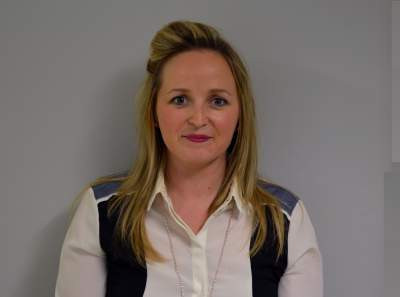Package summary
Middletown Centre for Autism
5 Week Joint Event Training Programme
Autism and the Primary School
Programme Content:
1. Autism and Social Communication
2. Autism, Learning Style and the Impact of Visual Teaching Methods
3. Autism and Sensory Processing
4. Autism and Anxiety Management
5. Autism and the Promotion of Positive Behaviour
This five-week programme has been designed for parents, family members and education professionals living and working with Primary aged children with autism
Please check the Centre’s website for details. www.middletownautism.com
Notes
Courses in package
Autism and Social Communication
Event summary
Date
Start Time
End Time
Online Training Webinar,
Booking closes
Autism and Social Communication.
Social communication is a multi-faceted, complex interaction involving mastery in many of the following,
• Understanding non-verbal cues
• Command of tone of voice
• Command of facial expressions
• Understanding different purposes of conversation
• Sense of humour
• Familiarity with social courtesies
• Making the abstract concrete
• Visual structure and predictable routines
• Activities that provide support for language abilities
• Interactions that provide focus on peers and self-awareness
• Generalisations.
Therefore, social communication can be challenging for many children with autism. Many wish to be socially interactive, make friends and form relationships, be included within the family home, classroom and wider community, but find it difficult because of the many social conventions needed to achieve effective communication.
Autistic children experiencing such difficulties, may find it hard to understand the messages being given, such as the meaning we put into our voice, the expressions on our faces, and gestures such as waving, pointing or shrugging
Expected Outcomes
Participants will have an increased understanding of
• How social communication is defined.
• The social communication difficulties are experienced by those with autism
• Best practices in supporting the child in the classroom, family home and wider community
• The importance of visual information as it remains available long enough to enable the child to focus on it or return to it as needed to establish memory for the message it is communicating. Visual tools provide a non-transient foundation for more effective communication.
• How to use the strengths of the child with autism to help him or her communicate effectively.
Notes
Location
Online Training Webinar
Get Directions
Dee Hogan
Autism, Learning Style and the Impact of Visual Teaching Methods
Event summary
Date
Start Time
End Time
Online Training Webinar,
Booking closes
Autism, Learning Style and the Impact of Visual Teaching Methods
Visual strategies are widely used when working and living with children and young people with autism as they:
• Complement the learning style of many with autism.
• Can be introduced alongside other intervention strategies.
• Are adaptable, portable and can be used in most situations.
The use of visual strategies can have a notable impact on how a child with autism experiences family, community and school life, as they help to clarify expectations and make abstract concepts more concrete. Visual strategies support children as they develop effective communication, appropriate social interaction, and positive behaviour skills, as well as accessing the curriculum.
This session will cover why visual teaching methods work. Parents, family members and education staff will become more familiar with how their input will reflect a sound evidence base and be more able to adapt the home, community and school environments and individualised tasks to meet the needs of the child, in order, to enhance learning, play or leisure skills and social interactions.
Expected Outcomes
Participants will:
• Understand the importance of visual teaching methods in autism.
• Understand how visuals will improve the learning of the child and their experience in the family home, community life and school.
• Develop some visual strategies that can be used to support the child
Course Overview
• Why visuals work for children with autism.
• Using visuals in the family home, community, school and individual classrooms
• How to develop visuals and implement visual strategies.
Notes
Location
Online Training Webinar
Get Directions
Dee Hogan
Autism and Sensory Processing
Event summary
Date
Start Time
End Time
Online Training Webinar,
Booking closes
Autism and Sensory Processing
Sensory processing refers to the ability of a child to register, interpret and respond to sensory information. This is a complex process involving all the sensory systems, auditory, gustatory, visual, olfactory, tactile, proprioceptive, vestibular, and interoception. When sensory processing is working well, a child can engage in daily functional activities and social interaction. Sensory processing differences are prevalent in autistic children and can affect every aspect of life and development.
This session examines the sensory processing differences frequently associated with autism and will demonstrate how such differences impact on learning, play, social interactions and behaviour for the primary school aged child.
Expected Outcomes
Participants will:
• Develop an understanding of the sensory processing differences in autism.
• Understand how sensory processing differences can affect the child’s experience at home, the classroom and in other settings.
• Understand how sensory processing differences can influence the child’s participation in daily activities.
• Develop an understanding of general intervention strategies to accommodate sensory processing differences in daily activities at home, school and beyond.
Course Overview
• Sensory processing differences in autism.
• How sensory processing differences can present in an autistic child
• How sensory processing differences can affect the child’s participation in daily activities.
• Intervention strategies to address sensory processing differences at home, school and in other settings.
Notes
Location
Online Training Webinar
Get Directions
Jill McCanney
Autism and Anxiety Management
Event summary
Date
Start Time
End Time
Online Training Webinar,
Booking closes
Autism and Anxiety Management
Primary aged autistic children experience anxiety in many situations, with some experiencing significant anxiety difficulties. For many, school is a major source of stress.
This session is an introduction to strategies that can be used to alleviate the experience of anxiety.
This will include
• An introduction to cognitively based strategies
• How to develop child centred strategies to deal with anxiety.
Expected Outcomes
Participants will:
• Understand how the difficulties experienced, including sensory difficulties, can contribute to the development of anxiety.
• Understand how anxiety can escalate and may result in an outburst.
• Develop some simple strategies to prevent the escalation of anxiety.
• Understand the basics of cognitively based management approaches.
Course Overview
• Anxiety triggers and build up.
• “On the spot” anxiety management strategies.
• Developing a “stress kit”.
• Cognitively based approaches and the emotional toolkit
Notes
Location
Online Training Webinar
Get Directions
Edel Quinn
Edel's main specialisms are in early intervention and delivering training in the implementation of visual strategies and behaviour. Edel is a Certified TEACCH Trainer with Division TEACCH, North Carolina. Edel has developed and delivered anxiety trainings and anxiety research projects to parents and professionals across Ireland. She has delivered at Autism and Mental Health Conference, NAS and the Autism Congress. Edel is an associate lecturer on the Post Graduate Autism Certificate with Mary Immaculate College, Limerick. Edel is working towards accreditation with BACP as a Cognitive Behaviour Therapist.
Autism and the Promotion of Positive Behaviour
Event summary
Date
Start Time
End Time
Online Training Webinar,
Booking closes
Autism and the Promotion of Positive Behaviour
This training session will consist of a combination of a webinar presentation supported by supplementary activities.
The webinar will look at the understanding of the concept of a behaviour of concern and how parents and education professionals working together can forge and formulate complementary strategies to be used for the autistic young person.
The supplementary activities will include academic papers, review of webinars and podcasts from Internationally renowned speakers and videos to support understanding.
Young people with autism can experience elevated levels of anxiety and stress often resulting in distressed behaviours for a variety of reasons, including interaction with the environment. This session will examine how an understanding of autism can influence interactions and thus the behaviour of young people.
Expected Outcomes
Participants will:
• Understand reasons for what we see as inappropriate behaviour
• Learn practical strategies for recognising early warning signs and making positive interventions
• Recognise the “Rumbling, Raging and Recovery” aspects of behaviour, and the role we can play.
• Understand the behaviour and anxiety bank account
Course Overview
• Clarity of information, including expectations and procedures.
• Consistency: A healthy, strong home school partnership is vital.
• Common sense: Remembering that sometimes the most effective is also the most straightforward and easiest.
• Continuation: Keeping the teaching and the positive supports in place to continue to help the young person to develop effective life skills
Notes
Location
Online Training Webinar
Get Directions
